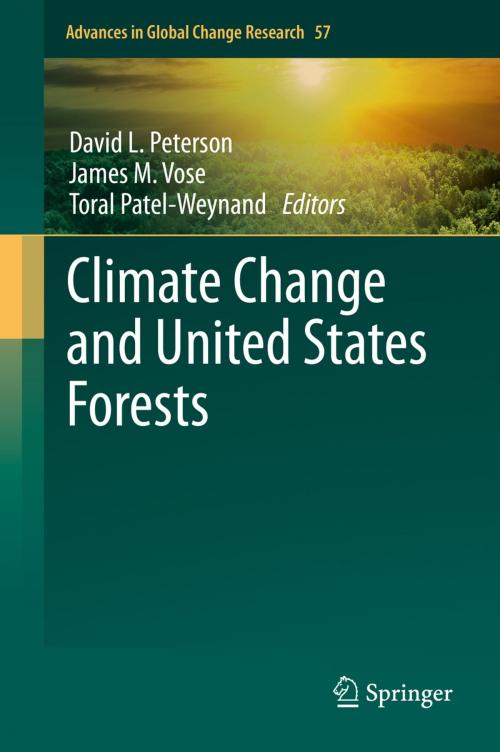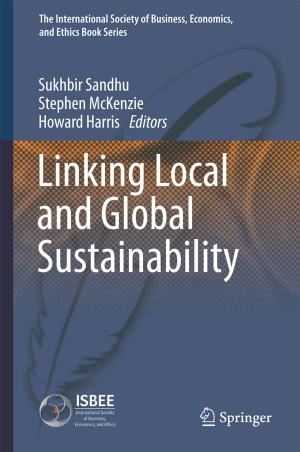Climate Change and United States Forests
Nonfiction, Science & Nature, Science, Biological Sciences, Ecology, Environmental Science, Nature| Author: | ISBN: | 9789400775152 | |
| Publisher: | Springer Netherlands | Publication: | December 19, 2013 |
| Imprint: | Springer | Language: | English |
| Author: | |
| ISBN: | 9789400775152 |
| Publisher: | Springer Netherlands |
| Publication: | December 19, 2013 |
| Imprint: | Springer |
| Language: | English |
This volume offers a scientific assessment of the effects of climatic variability and change on forest resources in the United States. Derived from a report that provides technical input to the 2013 U.S. Global Change Research Program National Climate Assessment, the book serves as a framework for managing U.S. forest resources in the context of climate change. The authors focus on topics having the greatest potential to alter the structure and function of forest ecosystems, and therefore ecosystem services, by the end of the 21st century. Part I provides an environmental context for assessing the effects of climate change on forest resources, summarizing changes in environmental stressors, followed by state-of-science projections for future climatic conditions relevant to forest ecosystems. Part II offers a wide-ranging assessment of vulnerability of forest ecosystems and ecosystem services to climate change. The authors anticipate that altered disturbance regimes and stressors will have the biggest effects on forest ecosystems, causing long-term changes in forest conditions. Part III outlines responses to climate change, summarizing current status and trends in forest carbon, effects of carbon management, and carbon mitigation strategies. Adaptation strategies and a proposed framework for risk assessment, including case studies, provide a structured approach for projecting and responding to future changes in resource conditions and ecosystem services. Part IV describes how sustainable forest management, which guides activities on most public and private lands in the United States, can provide an overarching structure for mitigating and adapting to climate change.
This volume offers a scientific assessment of the effects of climatic variability and change on forest resources in the United States. Derived from a report that provides technical input to the 2013 U.S. Global Change Research Program National Climate Assessment, the book serves as a framework for managing U.S. forest resources in the context of climate change. The authors focus on topics having the greatest potential to alter the structure and function of forest ecosystems, and therefore ecosystem services, by the end of the 21st century. Part I provides an environmental context for assessing the effects of climate change on forest resources, summarizing changes in environmental stressors, followed by state-of-science projections for future climatic conditions relevant to forest ecosystems. Part II offers a wide-ranging assessment of vulnerability of forest ecosystems and ecosystem services to climate change. The authors anticipate that altered disturbance regimes and stressors will have the biggest effects on forest ecosystems, causing long-term changes in forest conditions. Part III outlines responses to climate change, summarizing current status and trends in forest carbon, effects of carbon management, and carbon mitigation strategies. Adaptation strategies and a proposed framework for risk assessment, including case studies, provide a structured approach for projecting and responding to future changes in resource conditions and ecosystem services. Part IV describes how sustainable forest management, which guides activities on most public and private lands in the United States, can provide an overarching structure for mitigating and adapting to climate change.















